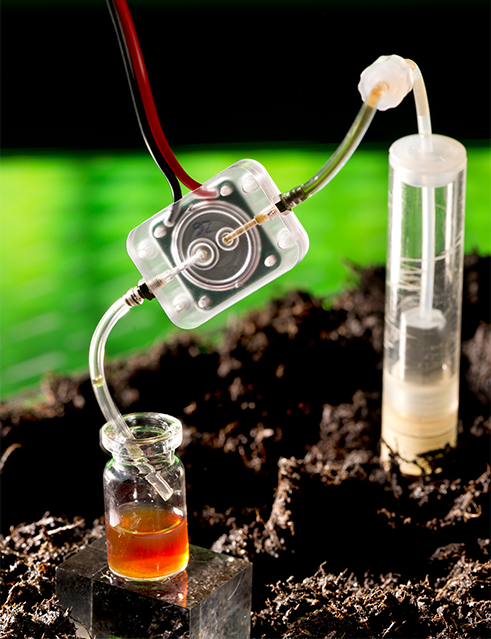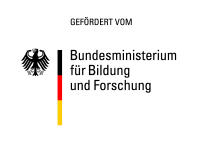Healthy soils are a basis for sustainable and at the same time productive agricultural use. In situ measurements of indicative soil parameters would therefore be an effective tool for farmers to optimize cultivation - but up to now there are hardly any practicable solutions available on the market. Researchers at Fraunhofer EMFT are working with partners in the project FAMOSOS to develop a measuring system that provides real-time soil data on material flows such as nitrogen (ammonium, nitrate, nitrous oxide), moisture, pH and dissolved oxygen.
Project FAMOSOS: Sensor system enables in-situ soil analyses on site

Up to now, soil analyses are usually done in the lab, which is time-consuming and cost-intensive. The FAMOSOS (FArm MOnitoring via Real-time SOil Sensing ) project therefore aims to develop a simple, accurate and reliable sensor system that allows measurements directly on site and in real time. Within the framework of the project, the research partners intend to test their measurement system on various cultivation and grassland systems in both conventional and organic management.
In-situ monitoring of various geophysical and chemical properties of soil parameters is of great importance for various branches of scientific research. Fraunhofer EMFT will develop an active microfluidic extraction unit as part of the sensor system. This contains suction probes or soil samplers, which are integrated with an application-specific piezoelectric micromembrane pump. The miniaturized unit is placed directly in the soil and sends the generated data wirelessly to a central metering station. Continuous or discontinuous modes of operation will be possible, depending on research needs.
With their approach, the researchers enable valid soil analyses without time-consuming sample preparation and long waiting times for lab results.
FAMOSOS brings together a highly experienced team with expertise in soil physics and biophysical modeling, soil microbiology, agricultural management, microfluidics, and information and communication technologies, including sensors and wireless data transmission. The data generated in the project will enable a process-based understanding of the nitrogen cycle and provide valuable input for process-oriented models.

The project is funded by the by the German Federal Ministry of Education and Research BMBF under grant number 031B1377B.
